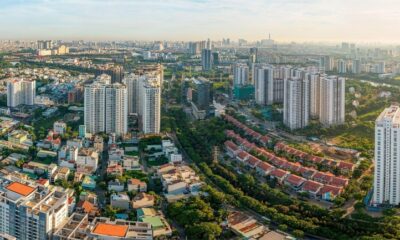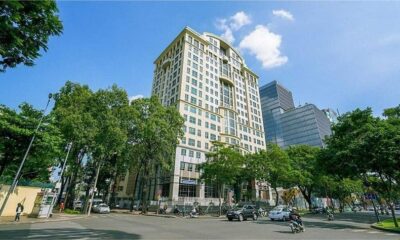Project
Clarifying rules on foreign property ownership
Published
1 year agoon
Updates to housing laws are bringing positive changes to overseas Vietnamese, foreign individuals and foreign institutions.
A new set of key laws regulating the Vietnam real estate market, namely the Land Law, the Law on Real Estate Business and the Law on Housing, came into effect on August 1, 2024.
The recent updates to Vietnam’s real estate laws aim to enhance transparency, encourage investment, and protect the rights of property owners and investors.
These new laws are making positive changes to house-ownership rights for overseas Vietnamese, foreigners and foreign organisations. Significantly, foreigners’ right to buy and sell housing from fellow non-nationals is recognised in the new legislation. Furthermore, overseas Vietnamese are now permitted to buy and rent houses that come with land, obtain land-use rights at housing projects and inherit residential and other types of land adjoining houses.
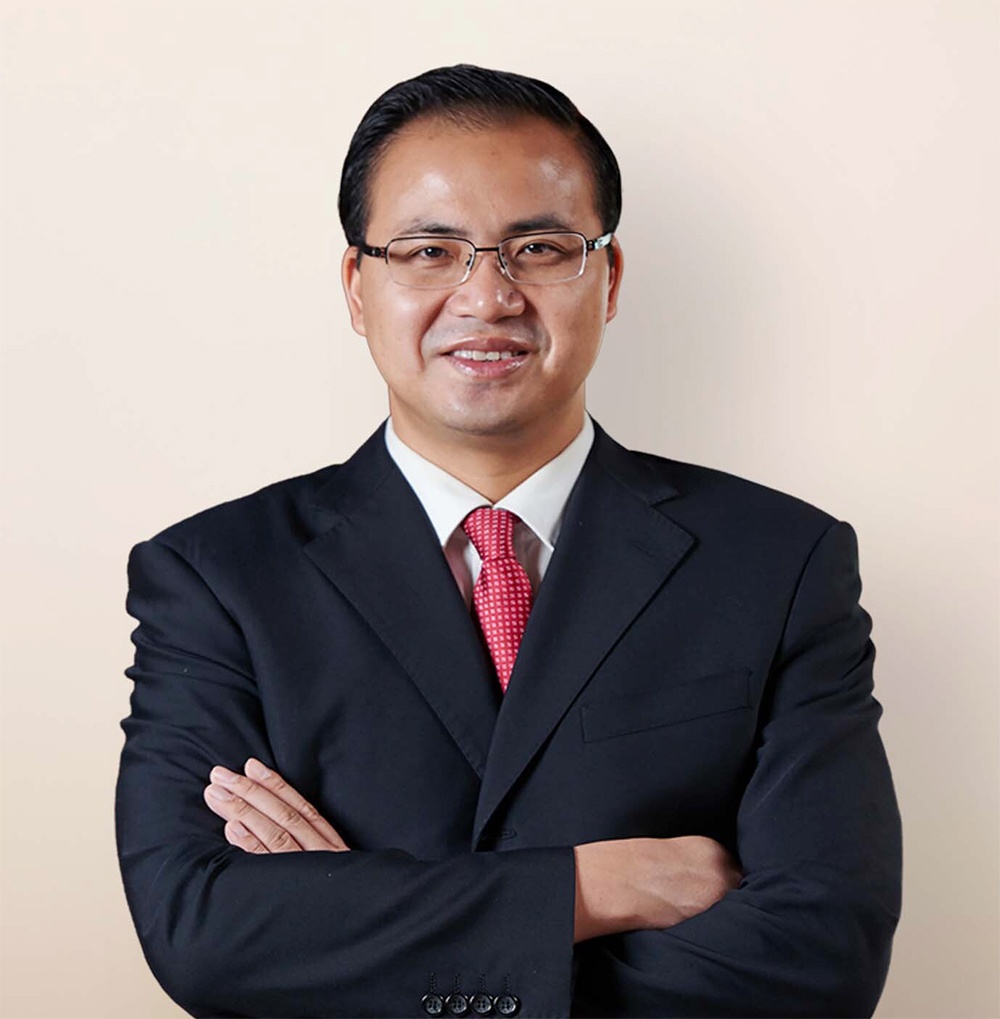 |
| Vu Le Bang, partner of Nishimura & Asahi |
Under the Law on Housing, “housing” is a construction work intended for living that meets the needs of a family or individual, which includes single-family house, apartment buildings, commercial housing, official residences, relocation housing, social housing. Accordingly, overseas Vietnamese, foreigners and foreign organisations could be eligible for ownership of one or more types of such housing, subject to meeting respective statutory conditions.
Compared with the previous Law on Housing, the new one explicitly provides that the eligible overseas Vietnamese for owning housing in Vietnam are the overseas Vietnamese in accordance with the law on nationality.
Under the Law on Vietnamese Nationality, overseas Vietnamese are Vietnamese citizens and persons of Vietnamese origin who permanently reside abroad. In which, “persons of Vietnamese origin residing abroad” are Vietnamese people who used to have Vietnamese nationality which had been determined at the time of their birth on the consanguinity principle and their offsprings and grandchildren are permanently residing in foreign countries.
The Law on Housing also stipulates that overseas Vietnamese must satisfy certain conditions to own housing in Vietnam. Specifically, an overseas Vietnamese may own houses associated with residential land use right in accordance with Land Law if such overseas Vietnam is permitted to enter Vietnam.
The supporting documents are a valid Vietnamese passport bearing Vietnam entry stamp at the time of housing establishment regarding overseas Vietnamese being Vietnamese citizens, a valid foreign passport/international travel document bearing a Vietnam entry stamp at the time of signing housing transaction regarding a person of Vietnamese origin.
Foreign organisations and individuals
There is no explicit definition of “foreign individual” under the Law on Housing. However, a similar term has been defined under the Law on Entry, Exit, Transit, and Residence of Foreigners in Vietnam, in which, “foreigners” mean those who have papers proving their foreign nationalities, or those without nationalities, enter, exit, transit through, or reside in Vietnam.
The Law on Housing stipulates that the foreign individuals who are permitted to enter Vietnam (with foreign passport bearing Vietnam entry stamp) and not subject to diplomatic or consular privileges and immunities as prescribed by laws (with the written commitment) are entitled to own the commercial residential housing in Vietnam.
Different from foreign individuals, the Law on Housing provides specific categories of foreign organisations. Accordingly, the foreign organisations that are entitled to own the residential housing in Vietnam include foreign-invested economic organisations building houses in projects in Vietnam in accordance with Law on Housing and relevant regulations and foreign-invested economic organisations, branches, representative offices of foreign enterprises, foreign investment funds, and branches of foreign banks operating in Vietnam.
Overseas Vietnamese
In principle, overseas Vietnamese are entitled to own housing associated with residential land use right in accordance with the Land Law. Under this law, the overseas Vietnamese are recognised as land users. However, a significant amendment under the new Land Law is that the overseas Vietnamese being Vietnamese citizens and persons of Vietnamese origin are classified into two separate groups of land users.
Specifically, overseas Vietnamese being Vietnamese citizens are in the same group with domestic individuals, which means that they can enjoy full rights related to land, not only those to residential land, like Vietnamese citizens inside Vietnam. Furthermore, they are now fully entitled to acquire land use rights (LURs) of the residential land outside the housing development project to build and own houses like Vietnamese citizens inside Vietnam.
Meanwhile, the persons of Vietnamese origin are in a separate group and have fewer rights related to land than those of overseas Vietnamese being Vietnamese citizen. In detail, they can purchase, lease-purchase housing attached to the residential LURs; receive residential LURs in housing development projects; inherit LURs of residential land and other categories of land in the same parcel with housing; receive housing attached to residential LURs gifted by lawful heirs.
With respects to rights associated with the housing, overseas Vietnamese are entitled to, among other rights, be granted with the certificate on land use rights, ownership rights of residential housing and other assets attached to land for the housing under their lawful ownership; sell, lease-purchase, gift, exchange, bequeath, mortgage, contribute capital using housing; transfer housing sale and purchase contract; and rent, lend, allow temporary residence, delegate housing management, and other rights as prescribed by law.
Unlike the overseas Vietnamese, the foreign organisations and individuals are only entitled to own single-family houses and apartment in housing development projects, except for projects in areas requiring national defence and security assurance in accordance with Vietnamese laws, which must be notified by the Ministry of National Defence and the Ministry of Public Security and determined and published by local people’s committees.
The foreign organisations and individuals basically have rights associated with housing, the same as those of overseas Vietnamese. However, there are statutory restrictions on their rights. For instance, in the case of the foreign-invested housing developers on leased land, such an organisation is only entitled to lease the residential housing.
There is also a cap on foreign housing ownership quota applicable to foreign individuals and organisations rather than the foreign-invested housing developers, namely 30 per cent of all apartment units in an apartment building, and 250 houses on an area with a population size equivalent to a ward in case of separate houses (including villas, terraced housing). Foreign individuals and organisations rather than the foreign-invested housing developers are only eligible to the value of the housing in the case of being gifted or inheriting houses, which are not commercial housing or exceeding the foreign ownership quota or located in the areas requiring national defence and security.
The housing ownership term of foreign individuals and organisations rather than the foreign-invested housing developers is subject to their agreement in housing transactions. However, with respect to the foreign organisation rather than the foreign-invested housing developers, the housing ownership term must not exceed the term of their investment certificates (including the extended period).
Meanwhile, the housing ownership term of foreign individuals not exceeding 50 years from the issuance date of the certificate and may be extended once for a term not exceeding 50 years if there is demand. Specially, when foreign individuals are married to a Vietnamese citizen or overseas Vietnamese, they are eligible to own housing and have the same rights of housing owners as Vietnamese citizens or overseas Vietnamese.
Housing transactions consist of sale, purchase, lease purchase, rent, gifting, swap, inheritance, mortgage, capital contribution, lending, lodging, authorisation for housing management.
Housing in transactions must satisfy the following requirements: having a certificate relating land use rights and housing, except for statutory cases, such as, purchase, lease purchase, mortgage of off-plan housing; housing sale in the case of dissolution, bankruptcy; lease, lending, lodging, and authorisation for housing management; house inheritance; not subject to disputes, complaints, lawsuits regarding ownership as per the law (not applicable to off-plan housing); house ownership tenure is not expired (not applicable to off-plan housing); not designated for the enforcement of judgments or compliance with legally binding administrative decisions from the appropriate authority, nor subject to temporary emergency or preventive measures as dictated by the court or relevant authority; not subject to decisions on land expropriation, notice on clearance, demolition of competent authority.
In principle, parties to housing transactions must satisfy requirements regarding subjects of transaction in accordance with civil laws. Specifically, the parties have civil legal capacity and capacity for civil acts appropriate to the established civil transaction, and voluntarily participate in the transaction. Overseas Vietnamese, foreigners, and foreign organisation, as a party to housing transactions, are eligible for housing ownership in Vietnam as regulated under the Law on Housing.
Execution of housing contracts: Parties to housing transactions must produce contracts for purchase, lease purchase, lease, gift, swap, mortgage, capital contribution, lending, lodging, housing management authorisation containing statutory details.
Notarisation or certification of housing contracts: Notarisation of housing contracts must be implemented by notarising organisations; certification of housing contracts will be implemented by commune people’s committees where the houses are located. Notarisation can be done by legal requirements or parties’ option. Mandatory cases include housing purchase, lease purchase, gifting, swap, capital contribution, mortgage, inheritance. The housing contracts will be effective from the date on which notarisation or certification is done. Meanwhile, optional cases (subject to parties’ demand) comprise gifting of charity houses; purchase, lease purchase of state-owned housing; purchase, lease purchase of houses where either party is an organisation, such as social housing, housing for people’s armed forces, relocation housing; capital contribution in form of houses where either party is an organisation; lease, lodging, authorisation for housing management. In such case, the housing contracts will be effective from the date as agreed by parties or the signing date of the contract.
Issuance of a certificate: Subject to parties’ agreement, either party submits a request for the certificate regarding housing ownership to competent authorities. In the case of purchase and lease-purchase of houses of developers, project developers are responsible for obtaining the certificate for buyers, unless buyers voluntarily do such procedure. In practice, the certificates are successfully issued to the foreign organisations and individuals in Hanoi.
Vietnamese laws require an organisation and individual to pay income tax in the case of incurring the income in Vietnam such as the income from the transfer of the real estate, except for certain statutory cases (e.g., transfer of real estate between the husband and wife). The individuals and organisations must pay income tax in the case of selling residential housing in Vietnam with the tax rate of 2 per cent and 20 per cent, respectively. The receipt of residential housing as a gift or inheriting the residential housing by the individual also arise the tax by laws, except for certain statutory cases (e.g., between the husband and wife).
Notably, in the case of buying residential property in Vietnam, the homebuyer is required to pay the registration fee before registration of ownership rights with the state authority at the rate 0.5 per cent, and based on the unit price issued by the local people’s committee or the sale price under the transfer agreement, whichever is higher.
According to the Ministry of Construction, from 2015 to the end of the third quarter of 2023, more than 3,000 foreigners bought houses in Vietnam, mainly apartments in commercial housing projects in large cities and provinces. Of which, Hanoi accounted for more than half with 1,765 units; Ho Chi Minh City, and Bac Ninh, Binh Duong and Ba Ria-Vung Tau provinces accounted for 1,000 units, 110 units, 210 units, and 50 units respectively.
In the first half of 2024, foreigners bought more than 1,000 apartments in Hanoi. In the last quarter of 2024, Hanoi Department of Construction allowed seven more apartment projects, with about 3,000 apartments sold to foreigners, which are mostly high-end apartment projects in urban areas.
Such projects are also quickly sold, and more than 60 per cent of the apartments allowed for sale to foreigners. As reported by Hanoi Department of Construction, there are 67 certificates for housing ownership granted to foreign organisations and foreigners owning units in apartments building in Hanoi counting till December 16, 2022.
Source: https://vir.com.vn/clarifying-rules-on-foreign-property-ownership-122406.html
Project
Vietnam’s Exclusive Economic Zone boasts over 1,000 GW of wind power potential: report
Published
10 months agoon
April 27, 2025Vietnam’s Exclusive Economic Zone (EEZ) has a wind power potential of 1,068 GW, nearly 470 GW more than previously estimated, according to a report released Friday by the National Center for Hydro-Meteorological Forecasting (NCHMF).
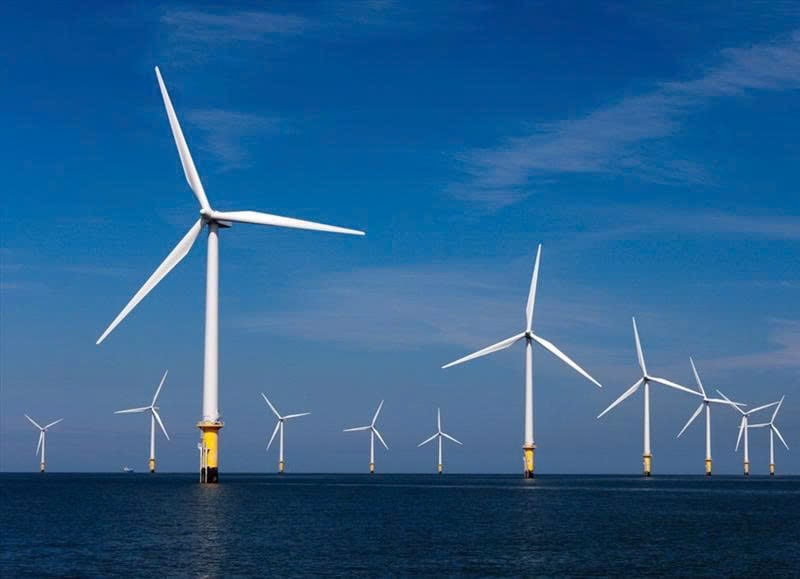
An offshore wind power project in Vietnam. Photo courtesy of VnEconomy.
The report, titled “Detailed Assessment of Wind Resource Potential in Coastal (up to 6 Nautical Miles) and Offshore Areas in Vietnam,” was conducted by the NCHMF with support from the United Nations Development Program (UNDP) and the Norwegian Embassy.
This wind potential was measured at a height of 100 meters above sea level, said Mai Van Khiem, director of the NCHMF. He noted that from November to February each year, wind capacity accounts for half of the annual total – peaking in December and gradually decreasing, with the lowest levels recorded in May.
The southern offshore areas account for 894 GW of this potential, while the northern areas contribute 174 GW.
In nearshore zones (up to 6 nautical miles), the total technical wind power potential is 57.8 GW. The Bac Lieu-Ca Mau region alone contributes nearly 30% of this, while the Ninh Thuan-Binh Thuan area accounts for 24 GW. Although the Quang Tri-Hue region has lower potential, it offers stable wind speeds during the winter months. The Red River Delta has a modest potential of 0.17 GW.
Compared to previous assessments, such as the World Bank’s 2021 study and data from the Global Wind Atlas (GWA), this report provides more detailed and higher-resolution information, both spatially and temporally.
“Notably, the EEZ potential outlined in this report exceeds the World Bank’s estimate by 469 GW, primarily due to the broader scope of the survey and more refined climate modeling using domestic observational data,” the research team explained.
They also emphasized the use of the Weather Research and Forecasting (WRF) model customized specifically for Vietnam, which enhanced the accuracy of the results.
The findings are based on wind data collected from 26 coastal and island meteorological stations, satellite sources from CCMP, ASCAT, and SCATSAT-1 (covering 30 years of ocean surface wind data), as well as buoy data from Nghe An province and seabed depth measurements.
A key innovation in this report is the integration of potential impacts from extreme weather events. Typhoons and tropical depressions occurring between August and October pose structural and safety risks to wind turbines. Meanwhile, strong winds and high waves during the northeast monsoon season can hinder access to and maintenance of offshore wind systems.
To support model calibration and long-term observation, the research team recommends increased investment in offshore wind monitoring stations at heights exceeding 100 meters. They also suggest incorporating these findings into offshore wind development strategies and national marine spatial planning.
Additionally, the team advocates for expanding research into other forms of marine renewable energy, such as wave, tidal, and ocean thermal energy.
“Vietnam has some of the most promising offshore wind resources in the region, creating a strong foundation for the development of a large-scale offshore wind industry. This will contribute to energy security, green economic growth, and the achievement of net zero commitments,” they said.
The study provides a vital scientific basis for policy planning, identifying priority development zones, attracting investment, building infrastructure, and training the future offshore wind workforce, the team added.
Hoang Duc Cuong, deputy director of the Department of Meteorology and Hydrology, emphasized that Vietnam lies within a strong and stable Asian monsoon belt, giving it abundant wind energy potential. He noted that this renewable source will play a key role in meeting the country’s climate change goals and advancing a low-carbon economy.
However, he also warned that marine-based natural disasters are highly complex and could significantly impact the stability of offshore wind operations and energy generation.
The ever-changing status of the global economy following last week’s tariff shocks continue to loom large among investors in Vietnam’s real estate market.
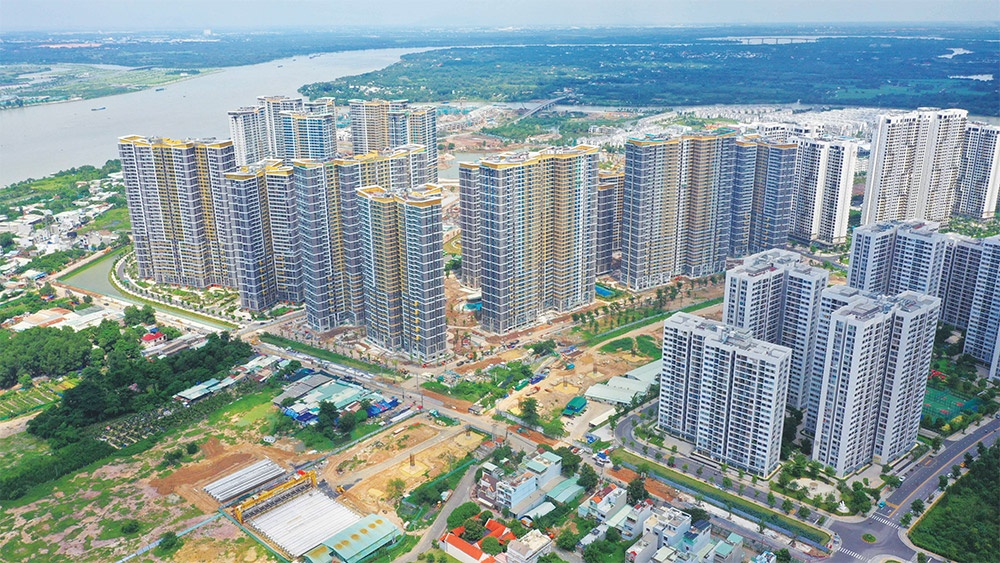 |
| All real estate segments are at risk of losing appeal if high global tariffs are eventually put in place, photo Le Toan |
Pham Lam, vice chairman of the Vietnam Real Estate Association, said that while it is premature to determine the full impact of new US import tariffs on Vietnam’s property market, early signs point to shaken investor sentiment and potential disruptions to foreign investment.
“If multinational corporations scale back or delay their factory expansion plans, the demand for land and factory leasing could decline, which may place downward pressure on industrial rents, lead to increased vacancy, and postpone new industrial zone developments,” he said. “This would affect key industrial property markets such as Bac Ninh, Bac Giang, Haiphong, Long An, and Binh Duong.”
Meanwhile, real estate expert Nguyen Hoang said that the United States remains one of the most critical export destinations for Vietnam’s foreign-invested enterprises.
“Any change in tariffs will significantly influence capital flows, investor confidence, and manufacturing strategies of companies operating in Vietnam. If a high tariff is fully implemented in 90 days, it could seriously diminish Vietnam’s investment appeal – affecting all real estate segments as a result,” Hoang said.
Vietnam’s property market has only recently emerged from a prolonged two-year downturn.
“It remains highly sensitive to economic and policy shocks. Investors have remained cautious, and any further external pressure could threaten to break the fragile liquidity recovery, potentially sending the market back into a period of short-term stagnation,” Hoang added.
Alex Crane, managing director of Knight Frank Vietnam, said that the recent tariff twists by the US casts a shadow of uncertainty, with potential implications for various segments of the market.
While manufacturing has shown resilience, it is still on the path to full recovery from the pandemic, particularly in labour-intensive sectors like garments and furniture. Tariffs imposed now would not have as severe an impact as they might have during Vietnam’s 2019 peak, but consequences are still expected, Crane said.
“I may expect that major transactions, especially those involving large capital outlays, are being paused or undergoing extended due diligence as investors and developers reassess assumptions and underwriting models and commercial occupiers are expected to defer large capital expenditures in the short term,” Crane said.
In addition, the response from the State Bank of Vietnam, particularly regarding monetary policy, will be crucial. While a rate cut may not effectively stimulate residential demand (as demonstrated in 2024), targeted lending for key industries and easing of loan-to-value ratios or debt-to-income limits for developers could provide relief.
“At present, most segments of the real estate market are in a holding pattern, awaiting clarity from the evolving negotiations between the Vietnamese and US governments. While uncertainty is unsettling, Vietnam’s underlying fundamentals remain sound, and the market’s long-term outlook is still viewed positively,” he added.
Nguyen Dung Minh, deputy CEO of MIK Group, has warned that under the new US tariff regime, many investors will be forced to reassess their strategies, likely leading to a decline in the demand for industrial land.
“Investors will need time to re-evaluate their actual demand and incoming orders and make necessary adjustments before they can fully gauge the extent of the impact,” Minh said.
He added that the implications go beyond just industrial land. “The new US tariffs are also expected to disrupt supply chains and negatively affect supporting sectors such as logistics, warehousing, and raw materials manufacturing. As production slows, so too will the demand for land associated with these services,” Minh said.
| Trang Bui, country head Cushman & Wakefield Vietnam
While the effects of tariffs are typically delayed, most economists warn that they may eventually fuel inflation and dampen economic growth. Many manufacturing firms could opt to postpone their expansion plans in the short term if export duties become too burdensome. There is also a possibility that some companies may look to diversify their supply chains towards a Vietnam+1 model, shifting parts of their operations to neighbouring countries. This could lead to a decline in demand for factories and warehouse leasing, two key drivers of the industrial real estate segment. However, it is important to recognise that industrial real estate is fundamentally a long-term investment. Vietnam has long positioned itself as the manufacturing hub of Southeast Asia, thanks to its strategic location and the “bamboo diplomacy” approach, which has enabled the country to swiftly join trade negotiations and sign multiple free trade agreements. Moreover, many manufacturers in Vietnam have already established tightly integrated supply chains. As such, their investment plans tend to operate on a much longer time horizon than the near-term effects of tariff policy. Relocating supply chains typically requires at least 3–5 years, making short-term shifts less likely. Overall, Vietnam’s industrial real estate sector has proven resilient under various political and economic conditions. Investors would do well to focus on long-term trends and structural advantages. Manufacturers, in particular, may take this opportunity to secure high-quality industrial assets, invest in automation, and pull in skilled labour, while continuing to monitor developments in upcoming trade negotiations with caution. Nguyen Thi Bich Ngoc, CEO, Sen Vang Group When it comes to the reciprocal tariff policy announced by the US, the greater danger currently lies not in the tariff itself, but in the heightened sense of uncertainty it has triggered across the Vietnamese market, a sentiment clearly reflected in recent VN-Index fluctuations. In the short term, the policy will weigh heavily on Vietnam’s industrial real estate sector. However, in the long run, this challenge could serve as a catalyst for stronger growth. It presents an opportunity for the government and industrial zone developers to rethink their strategies, offering more competitive, attractive solutions to both foreign and domestic investors. Rather than relying solely on external trends like the China+1 shift, Vietnam should leverage its inherent competitive advantages, including a strategic geographic location, a skilled and cost-effective labour force, and political stability, to pull in long-term investment. These are undeniable strengths that set Vietnam apart. Moreover, this is also an opportune moment for Vietnam to re-evaluate and restructure its key sectors, prioritising strategic industries with high growth potential. Continued engagement in bilateral and multilateral trade agreements will open up new opportunities and elevate Vietnam’s position both regionally and globally. Ultimately, we must seize this challenge as a turning point, transforming pressure into momentum for sustainable development. Vo Hong Thang, Investment director DKRA Group The industrial infrastructure, commercial, and residential real estate segments are all likely to face increasing headwinds if a huge tariff increase is eventually implemented. In recent years, a number of developers have made significant investments in industrial zones, betting on a continued influx of foreign direct investment. However, the new tariff policy raises the possibility of such flows being diverted to other countries. Vietnam now faces the risk of having built the nest, but being unable to attract the eagle. In addition, liquidity in both residential and commercial real estate, including retail, office, and hospitality, is likely to weaken in the short term due to more cautious investor sentiment, defensive capital flows, and reduced purchasing power from end-users. Niche investment segments such as serviced apartments, tourism-related accommodations, and foreign buyer housing could also see demand drop, particularly as the foreign expert and executive workforce, typically a key demand driver, scales back plans to live and work in Vietnam. |
Project
Central Vietnam city seeks $1.84 bln for 15 projects in economic zone
Published
10 months agoon
April 26, 2025Authorities of Hue city in central Vietnam have released a list of 15 projects in Chan May-Lang Co Economic Zone which will need VND47.5 trillion ($1.84 billion) in investment capital between 2025 and 2026.
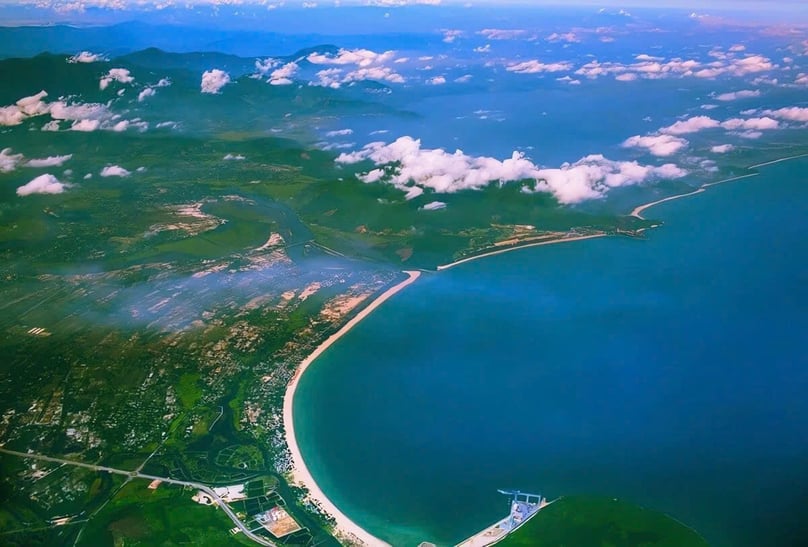
Chan May-Lang Co Economic Zone in Hue city, central Vietnam. Photo by The Investor/Dinh Duy.
Notable projects include the Chan May non-tariff zones No. 1 and 2 infrastructure development project, with a total area of over 503 hectares and combined investment capital of VND2.8 trillion ($108.23 million).
Another is the VND20 trillion ($773 million) Chan May Urban Area project (locations 1 and 2), which will cover 225 hectares and be implemented over five years.
The LNG terminal project at Chan May Port, 27 hectares with an investment of VND8.6 trillion ($332.43 million), is set for five-year implementation.
The 120-hectare Bai Ca eco-tourism project in Lang Co township will have investment capital of VND2.5 trillion.
The Lang Co beach resort, with an area of 45 hectares and total investment of VND4 trillion ($154.62 million), will be carried out over five years; while the 75-hectare Lap An lagoon tourism, urban development and resort complex in Lang Co township will cost VND6 trillion.
According to the management board of Hue Economic and Industrial Zones, since its establishment, Chan May-Lang Co Economic Zone has attracted 55 investment projects which remain valid, with total registered capital of VND97.32 trillion ($3.76 billion).
Among these, 15 are foreign-invested projects with combined capital of VND56.02 trillion ($2.17 billion), accounting for 57.56% of the total.
Several prominent foreign investors have established a presence in the zone, such as Banyan Tree Group (Singapore) with the Laguna Lang Co Resort and Winson Group (Taiwan) with the Billion Max Vietnam Export Processing Factory.
Chan May-Lang Co has become a destination for investments in sectors like tourism and resort development; seaport infrastructure; logistics; clean industry; and high-tech, environmentally friendly industries, with annual revenue reaching nearly VND4 trillion ($154.62 million) and tax contributions of around VND300 billion.
The management board said Hue city has proposed the Ministry of Construction review the adjustment of the EZ master plan through 2045, for submission to the Prime Minister.
The strategic goal is to develop Chan May-Lang Co into a key economic zone of central Vietnam – a coastal gateway offering logistics services for the central region and the East-West Economic Corridor, as well as a hub for high-end tourism services.
To attract investors, the local government will offer a range of incentives such as a 10% corporate income tax rate for 15 years from the first year the project generates revenue; import tax exemption for goods to create fixed assets for investment projects, and land and water surface rental exemptions, the board said.

Bac Giang International Logistics Centre launched

Vietnam’s Exclusive Economic Zone boasts over 1,000 GW of wind power potential: report

Uncertainty weighing on real estate

Central Vietnam city seeks $1.84 bln for 15 projects in economic zone


